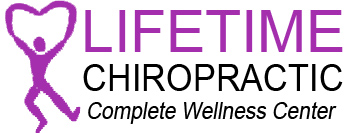
Kids love to play sports today just as they always have done, but these days the variety of sports on offer is huge. It is so easy to indulge their passion that, in the fun of it all, the importance of proper conditioning and healthy nutrition may be overlooked by parents and kids alike. Without these two elements, performance will not be as keen as it might be, and the chances of injury will be much higher.
In those more competitive of sports such as football, athletics and gymnastics, the training regimes imposed upon the kids can be something they are just not ready to handle unless their bodies are fully prepared, and they understand how to guard against the possibility of potentially serious physical damage.
Warming up, stretching, strength-training, cooling down, are all necessary for kids involved in sports, but even when they choose to follow the routines, they may not have sufficient learning to follow them properly. Thus it is not necessarily the sport itself that can be injurious; it may be the preparations that cause the damage. Improper stretching or weight-lifting techniques can be fairly ruinous to a still-developing teenager.
There needs to be appropriate and professional instruction given to young athletes in both general warm-up procedures, and in sport-specific warm-up. A slow jog is not sufficient preparation for a sport which may test body parts to their limits.
Eating proper nutrition and keeping well-hydrated are also crucial to support the rigors asked of the young athlete’s body. If 8 to 10 eight-ounce glasses of water each day is recommended for a non-sporting person, the requirements for an athlete are obviously greater considering how they are taxing their systems and sweating it out. A nutritious breakfast is very important, and during match or competition days the athlete should aim to eat a healthy meal around 2 to 4 hours before their physical exertion, and within 1 to 2 hours afterwards to properly refuel the body.
It is one of the traits of youth that kids feel nothing can hurt them, but this obviously isn’t true. By following the tips below, you can ensure your child is well-prepared for whatever their chosen sport throws at them.
Encourage your child to:
- Wear the proper equipment. Certain contact sports, such as football and hockey, can be dangerous if the equipment is not properly fitted. Make sure all equipment, including helmets, pads and shoes fit your child or adolescent. Talk to your child’s coach or trainer if the equipment is damaged.
- Eat healthy meals. Make sure your young athlete is eating a well-balanced diet and does not skip meals. Avoid high-fat foods, such as candy bars and fast food. At home, provide fruit rather than cookies, and vegetables rather than potato chips.
- Maintain a healthy weight. Certain sports, such as gymnastics, wrestling and figure skating, may require your young athlete to follow strict dietary rules. Be sure your child does not feel pressured into being too thin and that he/she understands that proper nutrition and caloric intake is needed for optimal performance and endurance.
- Drink water. Hydration is a key element to optimal fitness. Teenage athletes should drink at least eight 8-ounce glasses of water a day. Younger athletes should drink five to eight 8-ounce glasses of water.
- Drink milk. Make sure your child has enough calcium included in his/her diet. For children over 2 years of age, ACA recommends 1 percent or skim milk rather than whole milk. Milk is essential for healthy bones and reduces the risk of joint and muscle related injuries.
- Avoid sugar-loaded, caffeinated and carbonated drinks. Sports drinks are a good source of replenishment for those kids engaged in long duration sports, such as track and field.
- Follow a warm-up routine. Be sure your child or his/her coach includes a warm-up and stretching session before every practice, game or meet. A slow jog, jumping rope and/or lifting small weights reduces the risk of torn or ripped muscles. Flexibility is key when pushing to score that extra goal or make that critical play.
- Take vitamins daily. A multi-vitamin and Vitamin C are good choices for the young athlete. Vitamin B and amino acids may help reduce the pain from contact sports. Thiamine can help promote healing. Also consider Vitamin A to strengthen scar tissue.
- Avoid trendy supplements. Kids under the age of 18 should avoid the use of performance-enhancing supplements, such as creatine. Instead, they should ask their coach or trainer to include weekly weight training and body-conditioning sessions in their workout.
- Get plenty of rest. Eight hours of sleep is ideal for the young athlete. Lack of sleep and rest can decrease performance. Sluggishness, irritability and loss of interest could indicate that your child is fatigued.
Chiropractic Care Can Help
Many significant studies today have demonstrated the benefits of regular chiropractic care for both children and atletes. Quite simply, an ounce of prevention is worth a pound of cure, and this is always the best policy when in comes to young athletes. Waiting until pain and symptoms onset in a young athletes joints before taking measures to keep them functioning would be the same as waiting for your cars engine to blow up before having it serviced. If your family has young athletes we can help them stay at the top of their game and ensure that fastest possible recovery from injuries they may suffer. Regular chiropractic care is a wise investment that will pay dividends both now with improved athletic performance and long term by keeping the spine an nervous system healthy and develping at it’s very best. Be sure to give our office a call to find out how chiropractic care can benefit your whole family.
For Your Health,
Dr. Patrick Chenoweth
